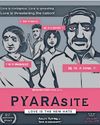
And in turn, he casts the lens on the tumultuous progress of politics in India, post-liberalisation.
Ranging from his falling out of favour with Sonia and Rahul Gandhi and how P.V. Narasimha Rao got more done without doing anything even as the nation burned, Aiyar makes good copy, describing how he almost got lynched by J. Jayalalithaa's party mobs, his apprehensions as a sports minister at the goings on leading up to the Commonwealth Games scam, and the umpteen power struggles in the Congress party in general, and the UPA in particular.
Being frank to a fault, Aiyar does try to justify the many comments he made that landed him in hot water, right from calling Prime Minister Narendra Modi neech to quipping that Sheila Dikshit was like a gangster's moll in a Bollywood flick.
As his exclusive interview with THE WEEK shows, the ex-diplomat does not believe in remaining diplomatic in the sunset years of his life and he is convinced that the future of India lies in being fundamentally secular.
Edited excerpts:
Q/ In your book, you have detailed issues that have cropped up because you said things some people did not like. You firmly believe in a particular way of life where you can have opinions which may differ from somebody else's, but you can still be friends and work together. That kind of an approach seems to be lacking now.
A/ For good reason. I was six years old when Jawaharlal Nehru became prime minister. My growing up years were all in the ethos of the idea of India which Nehru had spelt out in his Discovery of India. And that idea of India was what enabled him to do something that nobody in the world had done before-to trust the illiterate Indian, to trust the superstitious Indian, to trust the fractious Indian, to express his opinion openly as to who should run the country and how the country should be run.
Nobody believed that we could have a Westminster-style democracy in India on day one.
This story is from the December 29, 2024 edition of THE WEEK India.
Start your 7-day Magzter GOLD free trial to access thousands of curated premium stories, and 9,000+ magazines and newspapers.
Already a subscriber ? Sign In
This story is from the December 29, 2024 edition of THE WEEK India.
Start your 7-day Magzter GOLD free trial to access thousands of curated premium stories, and 9,000+ magazines and newspapers.
Already a subscriber? Sign In

POSTERS OF PROTEST
Appupen is a cartoonist who has published a few graphic novels, the latest being Dream Machine, about how AI can be a great 1 tool for an! authoritarian regime.

CLASH OF THE CIVILISATION
Even as the discovery of the Indus Valley Civilisation completes a century, some key aspects of this ancient culture remain mysterious, including its script. While the controversy over whether it was disrupted by an Aryan invasion may now be discredited, the debate over Indus ancestry and current links continues

A PROVEN PATHWAY TO PEACE
Low-cost, easy to implement, immediate results, and scientifically verified.

FOOTBALL GIVES THEM A KICK
For the children of Manipur and Mizoram, the great game is a way to a prosperous future

BATTLE FOR TOMORROW
Over the past decade, much has been said about India's potential as a leading global power.

THE TONGUE THAT TURNED
Why Greek survived while Latin and Sanskrit declined

USTAD ZAKIR HUSSAIN 1951-2024: HIS MUSIC WAS THERAPY TO THE WORLD
Flautist and Grammy co-winner Rakesh Chaurasia remembers the maestro

The magic of indigo
I really can't imagine why more of us don't throng Goa each December for the Serendipity Arts Festival alone. The festival, in its ninth year now, has the entire Panjim town celebrating.

NEW YEAR.NEW HOPE
EQUITY MARKETS HAVE TURNED VOLATILE OF LATE. WHAT TO EXPECT IN THE NEW YEAR

Seeking middle ground in Middle East
The collapse of assumptions is like the end of the world-or worldview. We assumed conwith the 20th century. But wars in Russia-Ukraine, Gaza, Yemen, Sudan, Somalia and Lebanon prove us wrong. Western defence officials now raise the nuclear threat level.